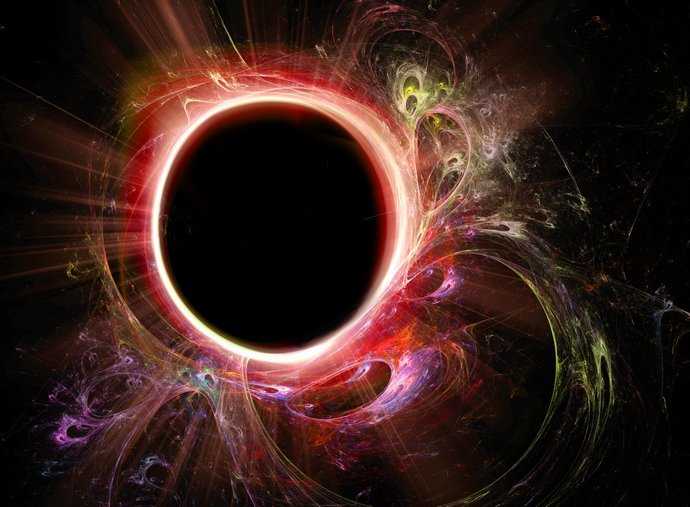- Dr Jon Heras
- Black hole singularity for energy generation
- Anim./Multimedia-D/Exhibits
Conceptual computer artwork illustrating Stephen Hawking's theoretical generation of energy from a black hole. Energy fluctuations in the vacuum cause the spontaneous generation of particles and anti-particles, which would normally self-anhiliate. At the event horizon, however, one particle could escape and the other be captured by the black hole's gravity. This emitted particle forms Hawking Radiation, the process by which black holes can slowly evaporate. The smaller the black hole, the faster it emits Hawking Radiation, and the faster it will evaporate. Hence, for maximum power output, a future civilisation would perhaps create small artifical black holes, which would be kept fed with regular matter. The net effect is a very efficient conversion from mass to energy, releasing a collosal amount of energy. For example, a million ton black hole would produce 56 petawatts of Hawking Radiation, the equivalent of 0.62 kg of mass per second.

